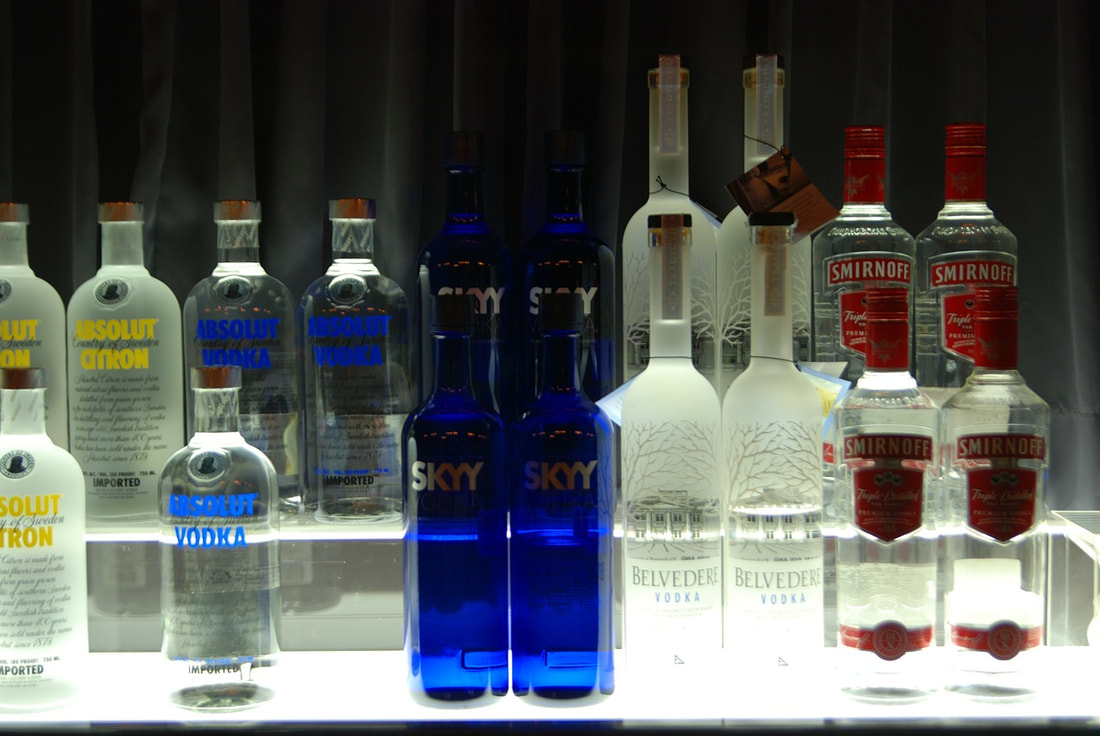|
10/19/2017 Think About It - Vodka Red Bull®After the success of Nutripol’s first alcohol-related Think About It on tequila, we’re bringing you the next drink in the series -- Vodka Red Bull ® ! This common cocktail mixes alcohol and caffeine and is an especially popular order amongst millennials. Read on to see if alcohol and caffeine really “cancel each other out,” and learn about the effects of taking these two together. Normally, Nutripol operates under the assumption that no food or beverage should ever be banned (we don’t like diets over here!), and that everything can and should be enjoyed in moderation. Alcohol is no exception, but it comes with a particularly stringent set of requirements. First of all, it is illegal to consume alcohol in the United States under the age of 21 (at the time of writing we are operating out of Australia, where the legal drinking age is 18). Secondly, binge drinking is a dangerous hobby that kills 88,000 Americans each year. Please drink responsibly.
Analysing the nutritional makeup of Vodka Red Bull® is best approached by looking at the alcohol and energy drink components separately, before taking them on together. Vodka is a neutral spirit, distilled from grain and bottled at no less than 40% alcohol by volume (80 proof). It’s designed to take on the flavour of whatever it’s mixed with, so it’s no wonder that vodka is the number one selling spirit in the United States -- selling over double the amount of the second place competitor. The calorie content of one shot of vodka depends on how strong the alcohol is. The more concentrated the vodka (the higher the proof it is), the more calories it has. For example, the standard Burnett’s® vodka is 80 proof, which has roughly 96 calories, or nearly 5% of the FDA daily-recommended intake. The flavoured versions of Burnett’s® are 70 proof, so if you’re drinking these each shot comes in at around 85 calories (this one’s for you, UVA!). Pure vodka contains nothing but water and ethanol, so the calories I mentioned above are strictly from the alcohol itself. Of course, nearly everybody drinks vodka mixed with something, even if it’s just as simple as club soda and a hint of lime. This is typically where people get into trouble as far as excess calories and sugar go -- a screwdriver (vodka + orange juice) has 200 calories (or 10% of the FDA daily-recommended value) and 22 grams of sugar, and a vodka cranberry has 200 calories and 28 grams of sugar. These numbers also assume that the cocktail only contains one standard shot of alcohol. A double shot drink (or just a particularly generous bartender) will significantly increase the calorie count. Since we’re on the subject of mixers, it’s time to examine Red Bull®. Alarmingly, the company does not disclose a full list of ingredients on their website, but just gives a general overview of the types of compounds that are present in their drinks. They do disclose the nutritional information (although it's hidden), so we know that one small can of Red Bull® alone contains 117 calories and 27.5 grams of sugar. In this regard, a Vodka Red Bull® will be similar to the aforementioned cocktails in caloric density and sugar content; however, there are some critical additions to energy drinks that consumers should be aware of before purchasing. Fortunately, another blogger did some investigating and published a piece examining each ingredient (as listed on each can) for what it’s worth. You can check it out here, but I’ll go over some of the most critical additives right now. Obviously, Red Bull® contains caffeine -- about the same as one cup of coffee (80 mg). It also contains taurine and glucuronolactone, two additives that are naturally found in the body but are thought to decrease fatigue and improve performance. None of these ingredients are particularly problematic on their own, but there isn’t enough evidence to determine if they’re safe to ingest when combined. Furthermore, the detrimental effects of their consumption, such as nausea, headache, and palpitations are thought to increase with volume consumed. So, what happens if alcohol, which is a nervous system depressant, and energy drinks, which are nervous system stimulants, are taken together? Many believe that one will “counteract” the effect of the other, essentially leaving the consumer at a neutral, non-impaired state. This is false. Evidence from multiple studies confirms that those who mix alcohol and energy drinks are far more likely to underestimate how drunk they are. These people are nearly two times more likely to experience sexual assault, drive drunk, ride in a vehicle with a drunk driver, or require hospitalisation than those who drink only alcohol. The combination of alcohol and energy drinks also confuses the nervous system, which can cause any number of adverse effects in the human body. The most common symptoms include an elevated heart rate and palpitations, both of which negatively impact sleep patterns. Furthermore, the diuretic nature of both alcohol and energy drinks means that dehydration is a likely side effect. There have been multiple deaths related to energy drink consumption after exercise, and one study remarks that the tendency of young people to dance throughout the night is enough physical activity to warrant concern. These observations were frightening enough to the U.S. government that the Food & Drug Administration (FDA) issued warning letters in 2010 to major companies stating that caffeine had not been approved as a safe addition to alcoholic beverages. This resulted in re-formulations for popular drinks including Four Loko®, which used to contain caffeine, taurine, and guarana but now lacks all three. Ways to Think About It:
Disclaimer: I am not a licensed nutritionist nor a registered dietician. The opinions expressed in this article are my own, and each individual is ultimately responsible for his/her dietary and nutrition practices. Please consult a physician before starting a new dietary program. Comments are closed.
|
categories: |

